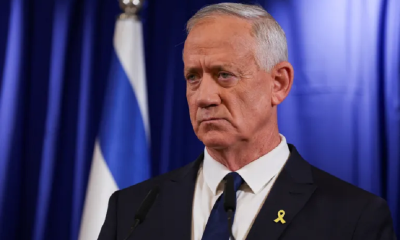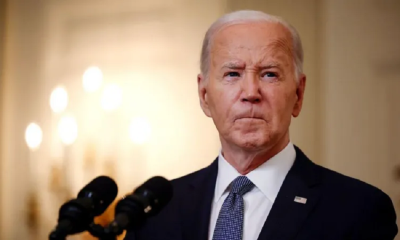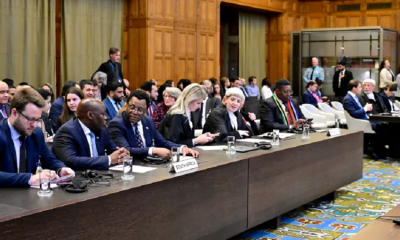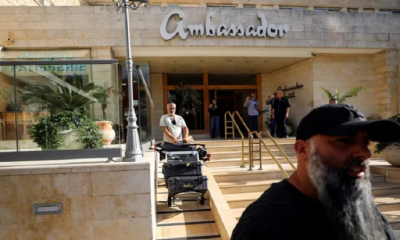Foreign News
Half of Gaza’s population is starving, warns UN
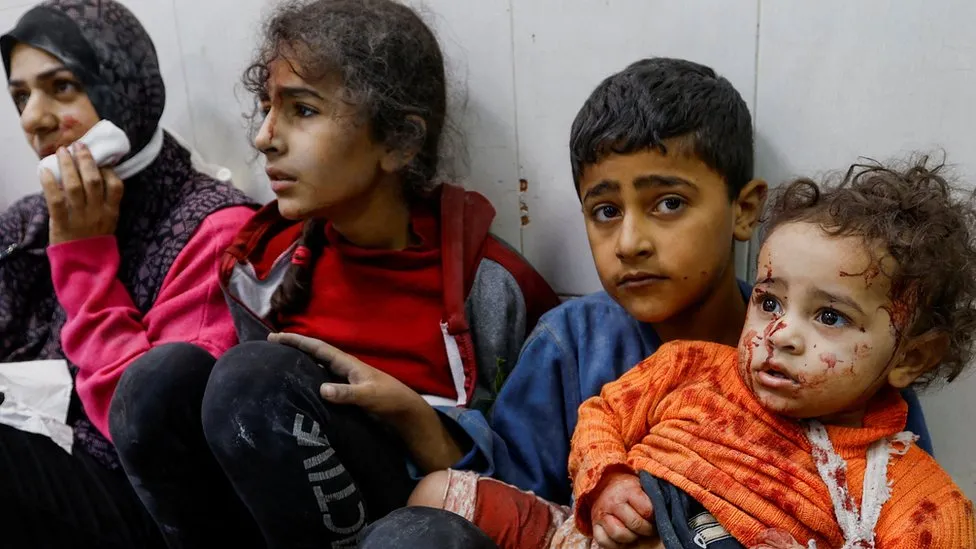
A senior UN aid official has warned that half of Gaza’s population is starving, as fighting there continues.
Carl Skau, deputy director of the UN World Food Programme, said only a fraction of supplies needed have been able to enter the Strip – and nine out of 10 people cannot eat everyday. Conditions in Gaza have made deliveries “almost impossible”, Mr Skau said.
Israel says it must continue air strikes on Gaza to eliminate Hamas and bring Israeli hostages home. Israel Defence Forces spokesman Lt Col Richard Hecht told the BBC on Saturday that “any death and pain to a civilian is painful, but we don’t have an alternative. We are doing everything we can to get as much as possible inside the Gaza Strip,” he said.
Herzi Halevi, chief of staff of the IDF, was filmed telling soldiers the army has to “press harder” because “we’re seeing terrorists surrendering… a sign their network is collapsing”.
Meanwhile, the Biden administration has used an emergency law to bypass Congress and authorise the sale of some 14,000 rounds of tank ammunition worth more than $106m (£85m) to Israel.
Movement in and out of Gaza has been heavily restricted since 7 October, when Hamas fighters broke through Israel’s heavily-guarded perimeter fence – killing 1,200 people and taking 240 hostages.
In response, Israel closed its borders with Gaza and began launching air strikes on the territory, restricting aid deliveries which Gazans heavily relied on.
The Hamas-run health ministry says Israel has killed more than 17,700 Gazans in its retaliatory campaign, including more than 7,000 children.
Only the Rafah crossing bordering Egypt has been open, allowing limited quantities of aid to reach Gaza. This week Israel agreed to open the Kerem Shalom crossing from Israel into Gaza in the next few days – but only for the inspection of aid lorries. The trucks would then go to Rafah to cross into Gaza.
Mr Skau said nothing had prepared him for the “fear, the chaos, and the despair” he and his WFP team encountered during their trip to Gaza this week.
They witnessed “confusion at warehouses, distribution points with thousands of desperate hungry people, supermarkets with bare shelves, and overcrowded shelters with bursting bathrooms,” he said.
International pressure and a temporary seven-day ceasefire last month had allowed some badly-needed aid to enter the Gaza Strip, but the WFP insists a second border crossing is now needed to meet demand.
Nine out of 10 families in some areas are spending “a full day and night without any food at all”, according to Mr Skau.
People in Khan Younis in the south of Gaza, a city now surrounded on two fronts by Israeli tanks, say the situation there is dire.
Dr Ahmed Moghrabi, head of the plastic surgery and burns unit in the city’s only remaining health facility, Nasser hospital, fought back tears as he spoke to the BBC about the lack of food. “I have a daughter, three years old, always she ask me (for) some sweets, some apple, some fruits. I can’t provide. I feel helpless,” he said.
“There is not enough food, there is not enough food, only rice, only rice can you believe? We eat once, once a day, only.”
Khan Younis has been the focus of heavy air strikes in recent days and the boss of Nasser hospital there said his team had “lost control” over the numbers of dead and wounded arriving at the facility.
Israel says Hamas leaders are hiding in Khan Younis, possibly in an underground network of tunnels, and that it is fighting house to house and “shaft to shaft” to destroy the group’s military capabilities.
(BBC)
Foreign News
Iraq sandstorm leaves many with breathing problems
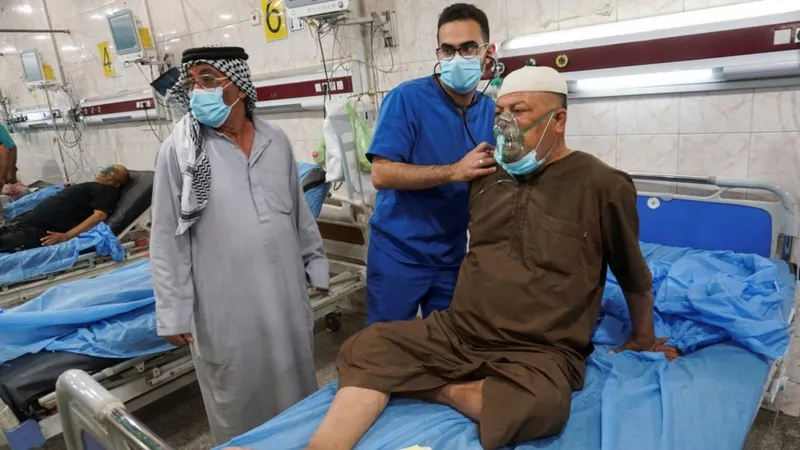
More than a thousand people have been left with respiratory problems after a sandstorm swept across Iraq’s central and southern parts of the country, health officials said.
One official in Muthanna province reported to the AFP news agency at least 700 cases of what they said was suffocation.
Footage shared online showed areas cloaked in a thick orange haze, with local media reporting power cuts and the suspension of flights in a number of regions.
Dust storms are common in Iraq, but some experts believe they are becoming more frequent due to climate change.
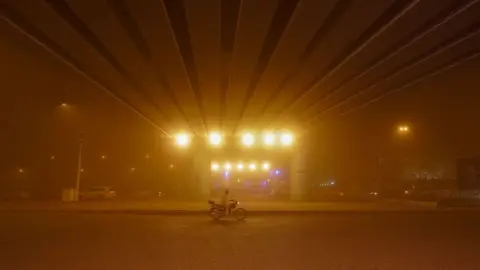
Pedestrians and police wore face masks to protect themselves from the dust and paramedics were on site to assist people with difficulty breathing, according to AFP.
Hospitals in Muthanna province in southern Iraq received at least “700 cases of suffocation”, a local health official said.
More than 250 people were taken to hospital in Najaf province, and at least 322 patients including children were sent to hospitals in Diwaniyah province.
A further 530 people reported breathing issues in Dhi Qar and Basra provinces.
The sandstorm blanketed Iraq’s southern provinces in an orange cloud that reduced visibility to less than one kilometre (0.62 mile).
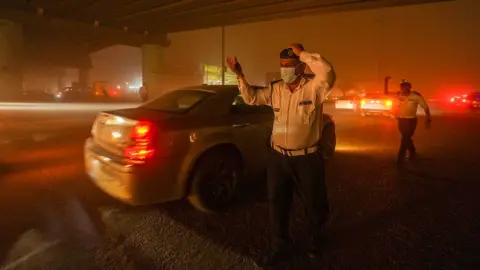
The authorities were forced to shut down airports in the provinces of Najaf and Basra.
Conditions are expected to gradually improve by Tuesday morning, according to local weather services.
Iraq is listed by the UN as one of the five countries most vulnerable to climate change as it encounters regular sandstorms, sweltering heat and water scarcity.
A severe sandstorm in 2022 left one person dead and more than 5,000 needing treatment for respiratory illnesses.
Iraq will be experiencing more “dust days” in the future, according to its environment ministry.
[BBC]
Foreign News
Indian billionaire jeweller Mehul Choksi arrested in Belgium
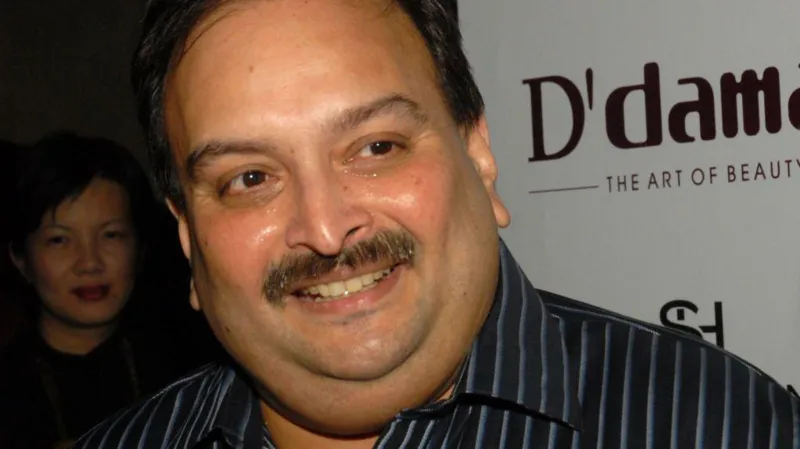
Indian businessman Mehul Choksi has been arrested in Belgium following India’s request for his extradition.
Choksi, who left India in 2018, was arrested on Saturday, his lawyer Vijay Aggarwal told the BBC on Monday.
The diamond merchant is wanted by India for allegedly defrauding one of the country’s largest banks of nearly $1.8bn (£1.3bn).
Choksi has not commented publicly on the case, but his lawyer said they would appeal against his detention and also oppose his extradition to India.
“These are the obvious grounds on which we will argue the case, that he is not a flight risk and secondly, that he is extremely sick. He is undergoing cancer treatment,” Mr Agarwal said. He added that they would “contest the extradition on grounds that there isn’t enough evidence against him and the extradition request is politically motivated and the trial in India may not be fair”.
The BBC has reached out to India’s foreign ministry and financial crimes agency – the Enforcement Directorate (ED) – for comment.
According to a Times of India report, Choksi was arrested on the basis of two non-bailable warrants issued by an Indian court in 2018 and 2021 – although it’s not clear why the action came now.
Mehul Choksi and his nephew, Nirav Modi, are wanted by Indian authorities in connection with a $1.8bn fraud case at Punjab National Bank (PNB).
Niray Modi, who’s also been living abroad since 2018, is lodged in a prison in London and is awaiting extradition to India.
Both were high-profile diamond traders. Modi’s jewellery was worn by several Hollywood celebrities such as Naomi Watts and Kate Winslet. One of the biggest Bollywood stars, Priyanka Chopra, was his company’s brand ambassador. Choksi, meanwhile, was the owner of Gitanjali Gems, an Indian jewellery retailer which once had about 4,000 stores across India.
The ED has accused Choksi and Modi of colluding with some employees of PNB’s Brady House branch in Mumbai city to get fraudulent advances for payments to overseas suppliers of jewels.
These funds were then allegedly diverted and laundered.
Choksi and Modi have denied the allegations against them.
After leaving India, Choksi reportedly travelled to the US and later to Antigua – where he has citizenship. In 2021, he was reportedly arrested in Dominica and deported back to Antigua.
Hariprasad SV, a Bengaluru-based entrepreneur who had in 2016 alerted authorities about the alleged scam at PNB, said Choksi’s arrest was “great news”. “Apart from bringing him back, the most important thing is to get back all those billions of dollars he looted from India,” he told ANI news agency.
[BBC]
Foreign News
Trump exempts smartphones and computers from new tariffs
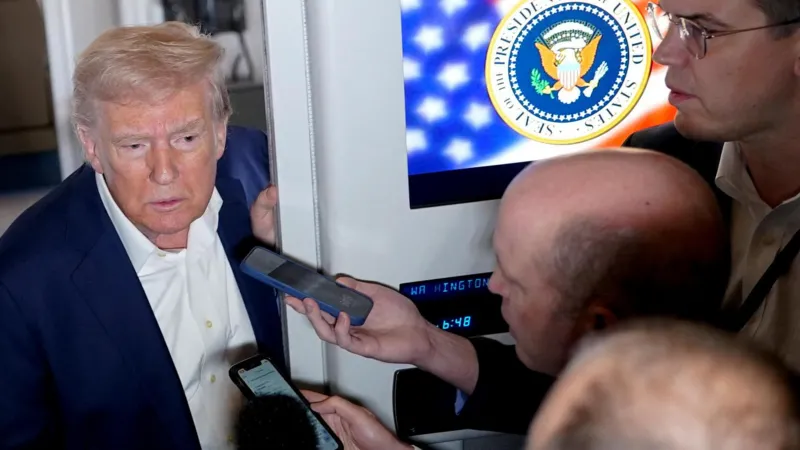
US President Donald Trump’s administration has exempted smartphones, computers and some other electronic devices from “reciprocal” tariffs, including the 125% levies imposed on Chinese imports.
US Customs and Border Patrol published a notice late on Friday explaining the goods would be excluded from Trump’s 10% global tariff on most countries and the much larger Chinese import tax.
The move comes after concerns from US tech companies that the price of gadgets could skyrocket, as many of them are made in China.
This is the first significant reprieve of any kind in Trump’s tariffs on China, with one trade analyst describing it as a “game-changer scenario”.
[BBC]
-

 News3 days ago
News3 days agoSuspect injured in police shooting hospitalised
-

 Features4 days ago
Features4 days agoRobbers and Wreckers
-

 Features6 days ago
Features6 days agoSri Lanka’s Foreign Policy amid Geopolitical Transformations: 1990-2024 – Part III
-

 Midweek Review6 days ago
Midweek Review6 days agoInequality is killing the Middle Class
-

 Business3 days ago
Business3 days agoSanjiv Hulugalle appointed CEO and General Manager of Cinnamon Life at City of Dreams Sri Lanka
-

 Business5 days ago
Business5 days agoNational Anti-Corruption Action Plan launched with focus on economic recovery
-

 Features2 days ago
Features2 days agoLiberation Day tariffs chaos could cause permanent damage to US economy, amid global tensions
-
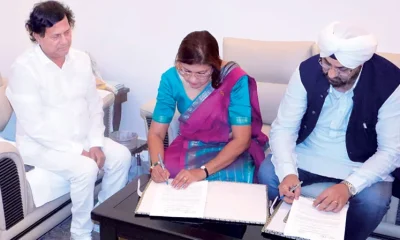
 News6 days ago
News6 days agoIChemC signs MoU with KIIT, India


